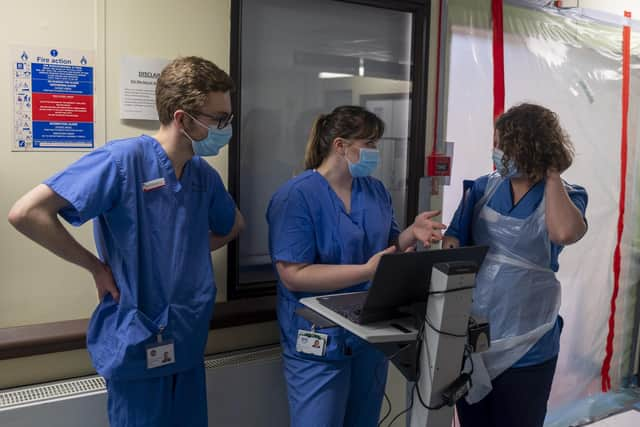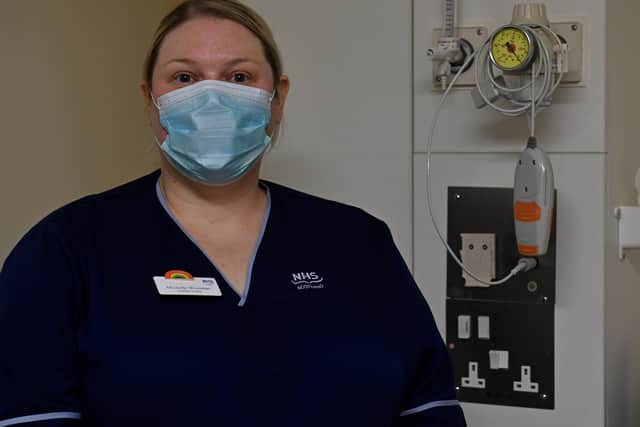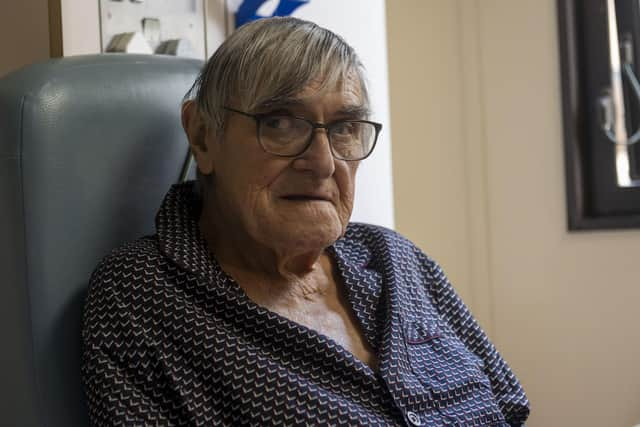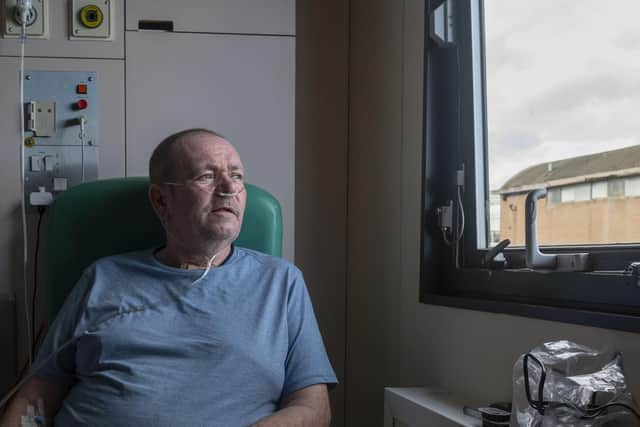Inside the infectious diseases unit where Scotland's first Covid-19 patient was treated one year ago
In some ways this marked the beginning of the pandemic in Scotland but Michelle’s team, and the wider infectious disease unit, had been preparing for weeks.
They had organised the first community testing in the UK, and just days before the first positive case was identified also set up a drive-through testing site at the hospital.
Advertisement
Hide AdAdvertisement
Hide AdThe Scottish Government had already made the decision that any positive cases would be sent to certain infectious disease units, and when a man in Tayside who had recently travelled to northern Italy tested positive, the Western General was the nearest centre.


“We were expecting it,” said Dr Claire Mackintosh, Clinical Director of the RIDU, “and we knew it was coming.”
The unit reacted to the first admission like a “well-oiled machine”, Dr Mackintosh said.
“We’re experienced in looking after possible cases of very complex, very highly consequential infectious diseases - we have protocols and policies in place in terms of keeping the staff safe, treating the patient, and we just enacted them.”
That first patient recovered well, and he turned out not to have been particularly sick with the disease.


At that stage the protocol was for everyone who tested positive to be admitted to hospital, in a vain attempt to prevent the virus from spreading through the community in Scotland. As a result many of the early patients were quite young, in contrast to later during the pandemic when just the sickest patients would be admitted - most of whom tended to be older.
Those early younger patients took easily to communicating with staff by phone, and were given a special number to call if they needed anything - a measure to reduce all but absolutely essential contact with patients.
Staff also had to wear more PPE than they were used to, even in the infectious diseases unit, and had to change the way they nursed.


Advertisement
Hide AdAdvertisement
Hide AdBut they were still better prepared to deal with the new reality of the pandemic than colleagues who had never worked with infectious diseases before, and senior members of staff were dispatched to other units to give advice and support.
“The world had been preparing for ‘disease x’ - an infectious disease of highly transmissible nature,” said Dr Mackintosh.
“There had been an understanding that a pandemic was inevitable.”
Dr Mackintosh remembers standing in her kitchen in January 2020, hearing news from China about coronavirus and thinking “is this it?”


“We had had plenty of dress rehearsals in the past”, said Dr Oliver Koch, Consultant in Infectious Diseases, referring to Ebola, SARS and MERS.
When he took the call about that first patient he was at a social event, surrounded by people.
“I remember looking around me and I knew in that instant that life as we knew it would change,” he said.
Both Dr Koch and Dr Mackintosh were called on to share their expertise with other departments.
Advertisement
Hide AdAdvertisement
Hide Ad“There were moments when it felt like every problem relating to this disease suddenly had become our problem, because we were asked by other specialties what should they do about one thing or another, and for many of these we didn’t necessarily have the answers at the time,” said Dr Koch.
Now much more is known about the disease, and treatments have improved.
But the unit is still not feeling the effect of falling case numbers around the country, as it is one of the principal Covid-19 treatment areas on the site.
“It’s been a tough year,” said Ms Wiseman.
“It’s been emotional. But the team have worked incredibly hard and there has been a real sense of loyalty and dedication.
“Everyone just pulls together, doing the best that they can for their patients, looking after each other, supporting each other. It has been tough, but there has been times that we’ve also had some laughs and things to get us through.”
One such patient is Robert Turnbull, 82, from Edinburgh, who has been in the unit for two weeks and is hopefully soon to go home.
“I’m feeling much, much better than I was, but before I came in here I was pretty ill,” he said.
“They’ve done a marvellous job on me, and I couldn’t have been better looked after.”
Advertisement
Hide AdAdvertisement
Hide AdMr Turnbull had been shielding for a year to protect his wife Eileen, who has cancer, and doesn’t know how he could have picked up the virus.
He can’t wait to get back home to her.
“I need to get home to look after my wife, she has early dementia,” he said.
“She forgets and I’m there to keep her right. Normally when I’m well I do all the cooking and things as well - I want to get home and get back to that eventually.”
Mr Turnbull is also looking forward to getting out and about when he no longer needs to shield.
“I want to get out to the prom and sit and watch the world go by,” he said.
Rick McPhail, from Livingston, has been in the unit for months, after taking “really unwell” around the new year.
He was on a ventilator for around 40 days, and had to wear mittens at one point to stop himself ripping out necessary tubes while sick.
He doesn’t know when he’ll be able to go home.
“It would just be nice to get out and cuddle family,” he said.
Advertisement
Hide AdAdvertisement
Hide Ad“You can video call but it’s not quite the same. I’m looking forward to giving my mum a cuddle, and the rest of the family - if I’m allowed.”
A message from the Editor:Thank you for reading this article. We're more reliant on your support than ever as the shift in consumer habits brought about by coronavirus impacts our advertisers.
If you haven't already, please consider supporting our trusted, fact-checked journalism by taking out a digital subscription.
Comments
Want to join the conversation? Please or to comment on this article.